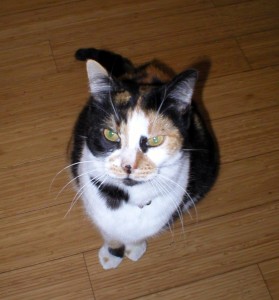![]()
![]()
![]()
![]()
![]()
sūsne
one’s tongue.
ñamma sūsne jaciēña;
He stuck out his tongue.
What that would mean culturally to the Kēleni I have no idea. Any suggestions?
![]()
![]()
![]()
![]()
![]()
sūsne
one’s tongue.
ñamma sūsne jaciēña;
He stuck out his tongue.
What that would mean culturally to the Kēleni I have no idea. Any suggestions?
![]()
![]()
![]()
![]()
![]()
![]()
sapīra
one’s tooth or teeth.
ñi lepīra ēnne rūjapēxa;
I lost two teeth.
![]()
![]()
![]()
![]()
![]()
![]()
sawūra
one’s mouth.
pa sāen sawūra nāpie;
She has too much mouth.
(She talks too fast. Or, she talks too confusingly. The implication is that she is speaking too quickly because she is using more than one mouth or that she holding more than one conversation and needs multiple mouths to do that with.)
![]()
![]()
![]()
![]()
![]()
![]()
sahīña
one’s nose.
for the impatient….
DC informing me that it is time to feed her, or take her picture, or something…

![]()
![]()
![]()
![]()
![]()
![]()
sarōña
one’s eye or eyes
Obligatorily possessed nouns do not have separate singular and plural (or collective) forms. So a word like sarōña can mean either one or both eyes (or more if we’re talking about aliens with more than two eyes.) One can specify, by saying things like sarōña tēna for both eyes, sarōña ān for one eye, sarōña jahūta for right eye, and so on, but it is not obligatory.
In some dialects, plural forms do exist, so sarōña would mean one or both eyes, and sarōñi would mean both eyes specifically. Standard Kēlen does not use these plural forms.
![]()
![]()
![]()
![]()
saŋē
one’s face, the front half of one’s head
![]()
![]()
![]()
![]()
maŋē
an informal word for person.
Actually, one can take nearly any body part and turn it into an animate noun meaning person. Turning a body part into a person implies that the person is being thought of as consisting primarily of that body part. So one could speak of eyes or ears as people when thinking of witnesses, or bellies as people when planning for how much food to prepare, or hands as people when figuring out how much labor is needed. manārme and maŋē are the most common body parts to be turned into animate nouns.
![]()
![]()
![]()
![]()
sōlle
one’s head, everything from the neck up.
pa sāen sōlle jōnōna lā;
He has a huge head! (discussing size, here)
![]()
![]()
![]()
![]()
![]()
![]()
![]()
sewēren
one’s self-definition: who one is inside, including one’s sense of right and wrong, one’s sense of honor, one’s conscience. Only people have this part.